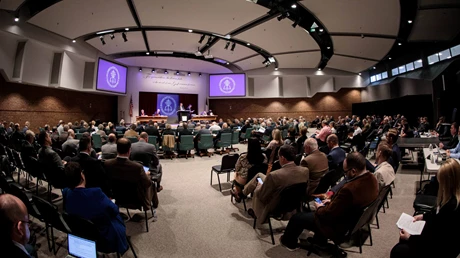The Bible points to a deeper truth—that it is not good for us to be isolated from community.
I’ve recently been working my way through the History Channel’s long-running TV series Alone.
For those unfamiliar with the premise of the show, ten contestants are separately dropped into very remote terrain where, with minimal resources, they are expected to survive for as long as possible—entirely alone.
There are no tribes. No well-practiced host. No ever-present camera crews. Each contestant is utterly and indefinitely alone.
If at any point it becomes too much, they can each tap out, no questions asked. Some quit because the elements—or the predators—are just too dangerous. Others because they are (quite literally) starving to death. Others because they are injured or sick. But many tap out because they simply can’t bear the soul-crushing solitude for another moment.
In a particularly poignant example from an early season, one contestant was equipped for the survival part of the challenge. They clearly had the skills and know-how to stay alive in the wilderness for some time.
But a few weeks in, they found themselves struggling with the overwhelming isolation. “I knew it was going to be hard being alone,” they said, “I guess I just didn’t know it was going to be this hard.”
In the end, the seclusion became too much, and they tapped out.
As they stood isolated, staring out at the water, waiting for the production crew to swoop in and extract them from the show, they put it very simply: “I am craving human companionship like it’s water .”
As I watched the scene, I couldn’t help but be struck by the image of Adam by himself in the Garden of Eden. The words of Genesis 2:18 are very familiar to us today: “The Lord God said, ‘It …
News brought to you by Christianity Today






